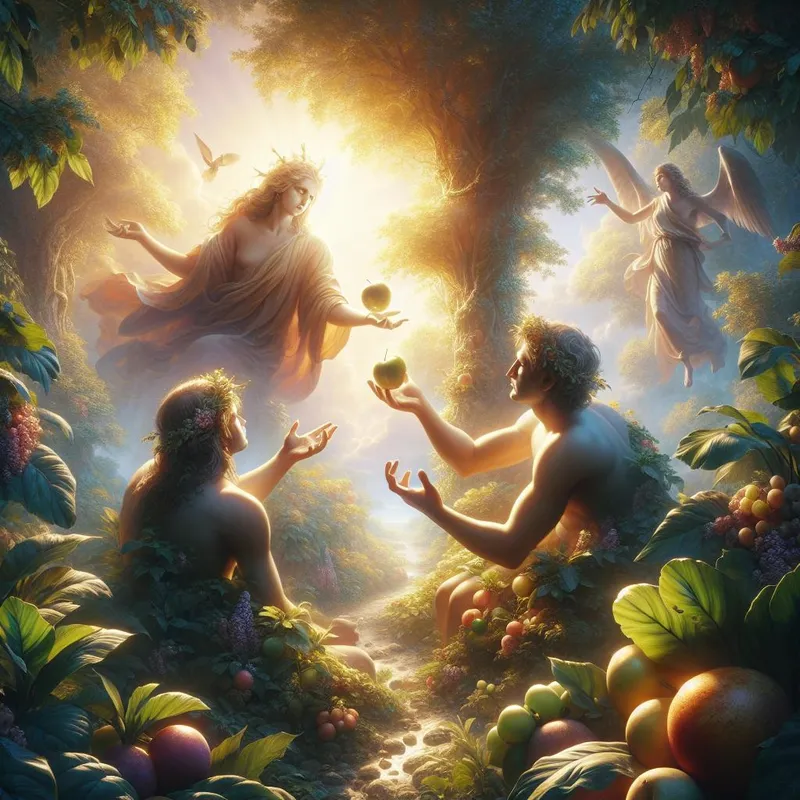
Did God Know? Understanding Adam and Eve's Sin in Christian Perspective
Posted on 25 May 2024
If God Knew Adam and Eve Would Sin
The Bible tells us that God created all things, including humanity, for His own glory (Romans 11:36). However, it may be challenging to understand how the fall of Adam and Eve, their sinning against God's command, could bring glory to Him. Some may even question why God would create them if He knew in advance the trouble they would cause.
God is omniscient and knows the future (Psalm 139:1–6; Isaiah 46:10), so He definitely knew that Adam and Eve would sin. Yet, He still chose to create them with free will, allowing them to choose to sin. It's important to note that God is not the author of sin or the one who tempted them to sin (James 1:13). The fall of mankind serves the purpose of God's overall plan for creation and humanity.
When we consider the overarching storyline of Scripture, we can divide biblical history into three main sections: paradise (Genesis 1—2), paradise lost (Genesis 3—Revelation 20), and paradise regained (Revelation 21—22). The largest part of this narrative revolves around the transition from paradise lost to paradise regained. At the center of this meta-narrative is the cross, which was planned from the very beginning (Acts 2:23).
From studying Scripture carefully, we can draw the following conclusions:
- The fall of mankind was foreknown by God.
- The crucifixion of Christ, serving as the atonement for God's elect, was foreordained by God.
- All people will one day glorify God (Psalm 86:9), and God intends to bring unity to all things under Christ (Ephesians 1:10).
God's purpose was to create a world where His glory could be fully manifest. The glory of God is the ultimate goal of creation. Everything God does is aimed at displaying His glory. The universe was brought into existence to showcase God's glory (Psalm 19:1), and His wrath is revealed against those who fail to glorify Him (Romans 1:18–25). The world we have, with its fall, redemption, and future restoration, best displays the glory of God.
God's wrath and mercy both reveal the richness of His glory, but we cannot fully comprehend either without the fall of mankind. We would never truly understand grace if we had never needed it. Therefore, every aspect of God's plan— including the fall, election, redemption, and atonement— serves the purpose of glorifying Him. When Adam and Eve fell into sin, God's mercy was immediately displayed in not executing immediate judgment. His grace was evident in providing a covering for their shame (Genesis 3:21). As mankind descended further into sin, God's patience and forbearance were demonstrated. His justice and wrath were displayed through the flood, while His mercy and grace were seen in saving Noah and his family. In the future, God's holy wrath and perfect justice will be revealed when He deals with Satan once and for all (Revelation 20:7–10).
God's love is also a manifestation of His glory (1 John 4:16). Our understanding of God's love comes from knowing Jesus Christ and His saving work in this fallen world. "This is how God showed his love among us: He sent his one and only Son into the world that we might live through him" (1 John 4:9). If God had chosen not to create Adam and Eve based on His knowledge of their fall or if He had made them devoid of free will, we would never have truly known what love is.
The ultimate display of God's glory occurred at the cross, where His wrath, justice, and mercy intersected. The righteous judgment for all sin was executed, and God's grace was shown through Jesus' words, "Father, forgive them" (Luke 23:34). God's love and grace are evident in those whom He has saved (John 3:16; Ephesians 2:8–10). Ultimately, God will be glorified as His chosen people worship Him for eternity alongside the angels. Even the wicked will glorify God as His righteousness results in the eternal punishment of unrepentant sinners (Philippians 2:11). Without the fall of Adam and Eve, we would never fully comprehend God's justice, grace, mercy, or love.
Some may argue that if God foreknew and foreordained the fall, it compromises human freedom. If God created humanity with full knowledge of their future fall into sin, how can humans be responsible for their own sin? The Westminster Confession of Faith addresses this concern by stating that "God, from all eternity, did, by the most wise and holy counsel of his own will, freely and unchangeably ordain whatsoever comes to pass; yet so, as thereby neither is God the author of sin, nor is violence offered to the will of the creatures; nor is the liberty or contingency of second causes taken away, but rather established" (WFC, III.1).
In other words, God ordains future events in a way that preserves our freedom and the working of secondary causes such as natural laws. Theologians refer to this as "concurrence." God's sovereign will operates simultaneously with our free choices in such a way that our choices always align with His will (while maintaining that our choices are not coerced). It may seem complex, but as the Creator God, He can handle any amount of complexity.
In summary, God knew in advance that Adam and Eve would sin, but He still chose to create them with free will. The fall of mankind serves the purpose of God's overall plan for His creation and humanity. God's ultimate goal is to display His glory, and the fall of Adam and Eve, along with all subsequent events, plays a role in achieving this goal. The cross of Jesus Christ stands at the center of God's plan, where His wrath, justice, and mercy intersected to bring about redemption. Through the fall, we come to understand God's justice, grace, mercy, and love in a way that would not have been possible otherwise.
